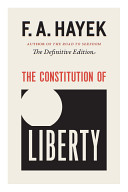Conservatives Reject Inconvenient Facts
Personally, I find that the most objectionable feature of the conservative attitude is its propensity to reject well-substantiated new knowledge because it dislikes some of the consequences which seem to follow from it – or, to put it bluntly, its obscurantism. I will not deny that scientists as much as others are given to fads and fashions and that we have much reason to be cautious in accepting the conclusions that they draw from their latest theories. But the reasons for our reluctance must themselves be rational and must be kept separate from our regret that the new theories upset our cherished beliefs. I can have little patience with those who oppose, for instance, the theory of evolution or what are called “mechanistic” explanations of the phenomena of life because of certain moral consequences which at first seem to follow from these theories, and still less with those who regard it as irrelevant or impious to ask certain questions at all. By refusing to face the facts, the conservative only weakens his own position. Frequently the conclusions which rationalist presumption draws from new scientific insights do not at all follow from them. But only by actively taking part in the elaboration of the consequences of new discoveries do we learn whether or not they fit into our world picture and, if so, how. Should our moral beliefs really prove to be dependent on factual assumptions shown to be incorrect, it would hardly be moral to defend them by refusing to acknowledge facts.
Notes:
A classical liberal and free market capitalist explains that he cannot be a conservative because they reject facts that disagree with their worldview such as evolution.
Folksonomies: politics ideology conservative republican
Taxonomies:
/science (0.474278)
/law, govt and politics/government (0.323540)
/religion and spirituality (0.194988)
Keywords:
certain moral consequences (0.900778 (neutral:0.000000)), well-substantiated new knowledge (0.833065 (negative:-0.614183)), new scientific insights (0.750213 (negative:-0.357902)), market capitalist (0.581700 (negative:-0.432055)), Inconvenient Facts (0.573113 (negative:-0.432055)), conservative attitude (0.561016 (negative:-0.614183)), classical liberal (0.558234 (negative:-0.432055)), objectionable feature (0.546100 (negative:-0.614183)), latest theories (0.530874 (positive:0.722757)), presumption draws (0.516620 (negative:-0.357902)), factual assumptions (0.511548 (negative:-0.422025)), new theories (0.496580 (negative:-0.729315)), moral beliefs (0.495250 (negative:-0.422025)), certain questions (0.491686 (negative:-0.400446)), world picture (0.461630 (positive:0.296762)), new discoveries (0.445767 (positive:0.296762)), conclusions (0.310560 (positive:0.364854)), evolution (0.259699 (negative:-0.432055)), propensity (0.226671 (negative:-0.614183)), reluctance (0.211839 (negative:-0.729315)), Conservatives (0.210773 (negative:-0.432055)), worldview (0.204698 (negative:-0.432055)), regret (0.202516 (negative:-0.729315)), fads (0.202181 (positive:0.722757)), elaboration (0.200687 (positive:0.296762))
Entities:
theory of evolution:FieldTerminology (0.916826 (neutral:0.000000)), free market:FieldTerminology (0.837564 (negative:-0.432055))
Concepts:
Conservatism (0.989015): dbpedia | freebase | opencyc
Free market (0.958725): website | dbpedia | freebase | yago
Liberalism (0.951208): dbpedia | freebase
Capitalism (0.939890): dbpedia | freebase | opencyc
Epistemology (0.921385): dbpedia | freebase | opencyc
Classical liberalism (0.859426): dbpedia | freebase | yago
Evolution (0.732475): dbpedia | freebase | opencyc
Reason (0.726897): dbpedia | freebase





